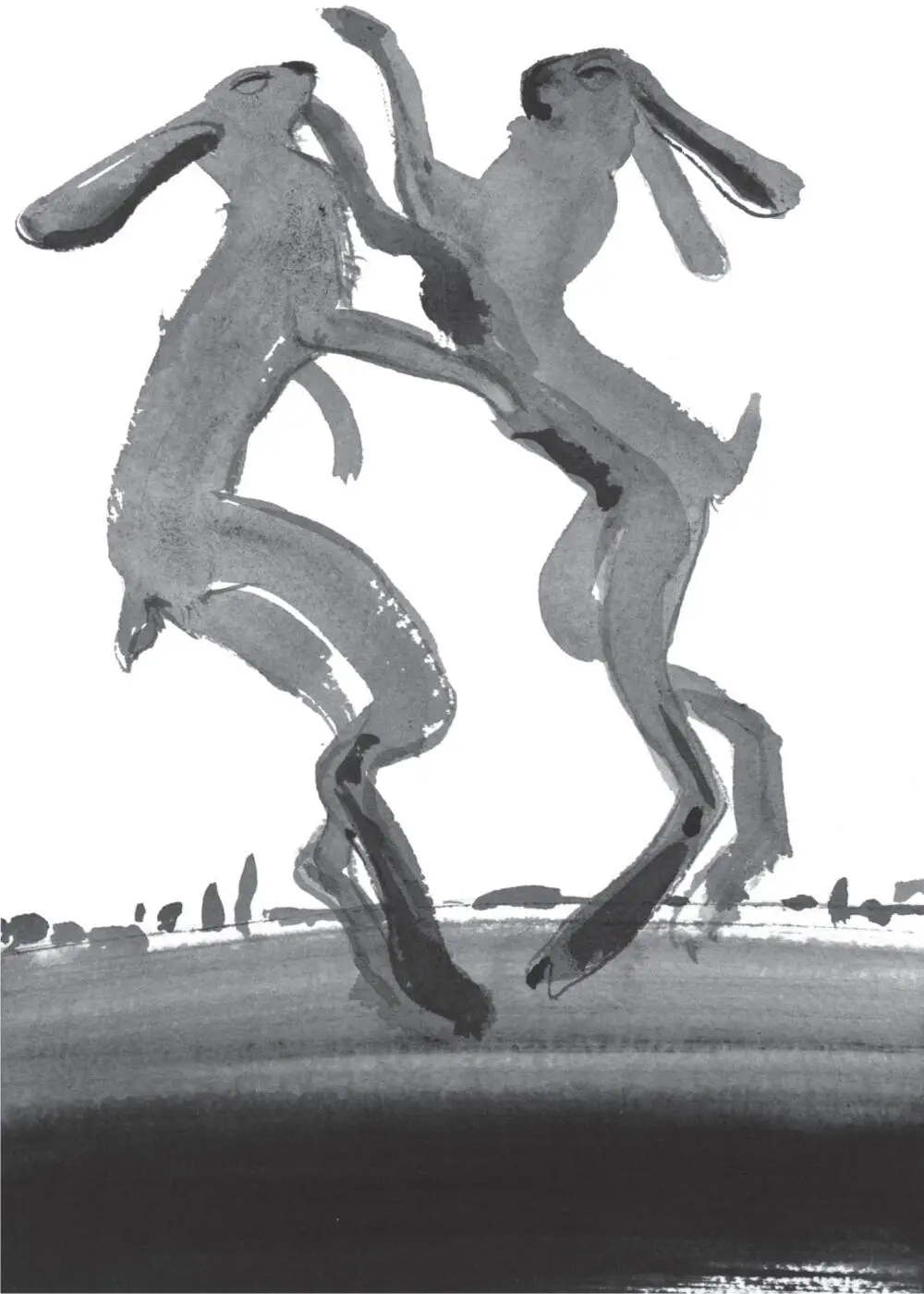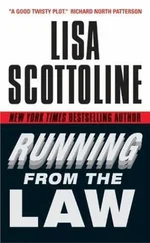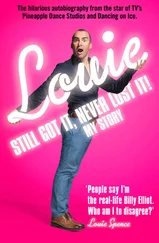Remnants of past ways of life and death were still in evidence when I was a child. Old people still drank poppy tea to ease the ague and the irritation of mosquitoes. There was also talk of the special brew, the black teapot, which I gathered – I don’t think incorrectly – was designed to help those who had become a burden to their families on their way into the next world. I would have nightmares about this vessel which I managed to exorcise later in life by making one. This black teapot – festooned with poisonous scorpions, spiders and snakes – is now on view in Norwich Castle Museum.
My family’s tradition was essentially muscular. My grandfather, Robert, had an iconic status long after his death, which occurred when my own father was eight years old. He had originally been a blacksmith with a sideline in breaking horses, before making a great success as a general dealer. He invested all his money in cattle and a large chunk of Welney Wash. He prospered to the extent of opening a couple of butcher’s shops in the village and even sold his meat pies in London. His business was then completely wiped out by drought, quickly followed by a foot and mouth epidemic. Soon after, he died a typical Fenland death. A horse and carriage crashed through the ice on the Wash and my grandfather helped rescue the trapped driver. He then went home and died of pneumonia.
He had thirteen children, eleven surviving, and these were farmed out among different families in Littleport, which gave me a tremendous range of aunts and uncles as a child. The Laws were a rather stoic breed, without being dour, and also quite ambitious, none more so than my father.
My father, I often felt, was a driven man, and the drive was to restore the fortune that fate had so cruelly wrested from the grasp of his own father. At various times he had three other brothers, Bill, Jack and Felix, working with him in the construction business, which hugely profited from the post-war council housing boom. But there were absolutely no family favours. The workers were expected to work at the double, but George Law’s nearest and dearest were expected to die for the business.
The more cosmopolitan side of my upbringing came from my mother, Winifred, and her family, the Hiblins. My mother’s parents ran the dairy in Littleport but they were acquainted with a much wider world. They had run a shop in the East End of London and my grandmother Jenny had worked in Birmingham for many years, in a supervisory capacity in the rag trade. She knew all the old music hall songs and was a lot of fun, if a bit sharp with it. Her husband was more subdued, but not unimpressive. Wilfrid had served in the First World War, and had lived to tell the tale, though with some difficulty. While he was on ambulance duty on the front line, part of his jaw had been shot away.
On weekends I would help out on the milk rounds. This involved venturing down tracks with names like Burnt Fen and Coffee Drove to lonely black pitched shacks and Fletton brick bungalows, flagged by a couple of desolate poplars as windbreaks. To survive this specialized work it was necessary to judge, within a gnat’s whisker, the length of the ubiquitous Alsatian’s chain.

My reward was getting to sit with my grandmother on Saturday evenings when, gin bottle to hand, she would do the books at a table covered with piles of coins and wads of notes. With the accounting done I was allowed to work my way through several bottles of Ely Ales from the crate in the pantry. Pleasantly inebriated, I would then listen to grandma’s tales of big city life, and get to sing some of the old songs along with her, the bawdier the better. My all-time favourites were ‘A Little Bit of What You Fancy Does You Good’ and the more intricate ‘Keep Your Hand on Your Ha’penny, and Hold Your Ha’penny Tight’.
My grandparents were also remarkable for being among the first people in the neighbourhood to own a television set, and I can remember, aged 12, being forced to watch a snowstorm on it called ‘The Coronation’ when I wanted to be out in the fields with my dog, Scrap, looking for birds’ nests. This undoubtedly damaged any royalist tendencies I might have had.
There was an unspoken but implicit assumption among the Hiblins that my mother, who had been to grammar school in Ely, had married slightly beneath her station. Apparently my father had wooed and won her by clambering over seven rows of seats in the Empire cinema, Littleport, to be by her side. He was seen as a man of purpose, but perhaps a shade uncouth. Politically, the Hiblins were quite sophisticated and refined, being of the Liberal persuasion.
My father’s political outlook is something I still find hard to define. From the frequency with which he said a problem could be solved by shooting somebody, you might think he was a Fascist. At the same time he had nothing but contempt for what could be described as the professional shooting classes, like the army for example. Military service, to his way of thinking, never made a man of anybody. Soldiers were not encouraged to think for themselves and became essentially lazy. His firmest belief was in work, and it would be hard to find a more instinctive capitalist, or a man more totally wedded to the proposition that people should pull themselves up by their own bootstraps. And his offspring were expected to demonstrate similar convictions. He had some time for Oliver Cromwell, Fenland’s greatest gift to Puritanism, but his real hero was the contractor Sir Robert McAlpine, whose dying words, according to my father, were, ‘Keep the big mixer rolling, boys.’
Yet when the Tories were in power they would be denigrated as ‘Them’ as opposed to ‘Us’. Like many people in the Fens, he was fiercely anti-authority while being quite a considerable authority figure himself. While I was growing up he always voted Labour, but he would have a late-flowering love affair with the politics of Mrs Thatcher.
I probably learned more trying to figure out where my father was coming from than I ever did from school, where I was mainly distinguished for my misbehaviour. After the Three Rs, education in the Fens did not seem to lead anywhere much. In those days there were eight grammar school places reserved for 11-plus successes in the whole Isle of Ely. There did not seem much point in trying, particularly when Littleport Secondary Modern had a reputation for being a good laugh.
When I first went there the headmaster’s favourite activity was playing the violin to the accompaniment of Fenland birdsong whistled by the boys. Unfortunately he left, to be replaced by Mr Browning, who had the much more ridiculous notion of turning the enterprise into a mini public school with houses, prefects and all that nonsense. I could not take to it, so I became disruptive. I would invite trouble by saying ‘Hello’ instead of ‘Yes, Sir’ when the register was being called, and I was caned for each offence until the form master got bored with hitting me. As I had no time for homework I rarely had any answers in the classroom, though the sullenness of my responses did help to sharpen up Mr Browning’s satirical skills. ‘Say something, Law,’ he would counsel, by way of encouragement, ‘if it’s only “Goodbye”.’
One new master marked our first encounter by belting me across the room and saying, ‘Now, Law, you can do one thing wrong.’ My reputation for making teachers’ lives a misery had evidently preceded me, and he was getting his retaliation in first.
My real education was in the holidays when, as the elder son, I was expected to immerse myself in the ways of the family business. That meant working with my father and his brothers on the building sites, where health and safety regulations were honoured only in the breach. On a Law Brothers’, more popularly known as Claw Brothers’, site everything was done on piece rates at breakneck speed, and if there was a corner to be cut my father would cut it. It was said of him that he did not lay bricks so much as ‘throw them down’. We would recycle track from disused railway lines, doors from old Nissen huts – anything that could be scavenged. We used wooden scaffolding, long past its day, and any deep trenches on site would routinely be left dangerously unsupported. The firm had acquired a reputation as the fastest contract builders in the East and my father aimed to keep it, whatever the building regulations might say. All this frantic activity would be laced with George Law’s special line in inspirational messages for the workers, all variants on, ‘If the dog hadn’t stopped for a crap he’d have caught the hare.’
Читать дальше













